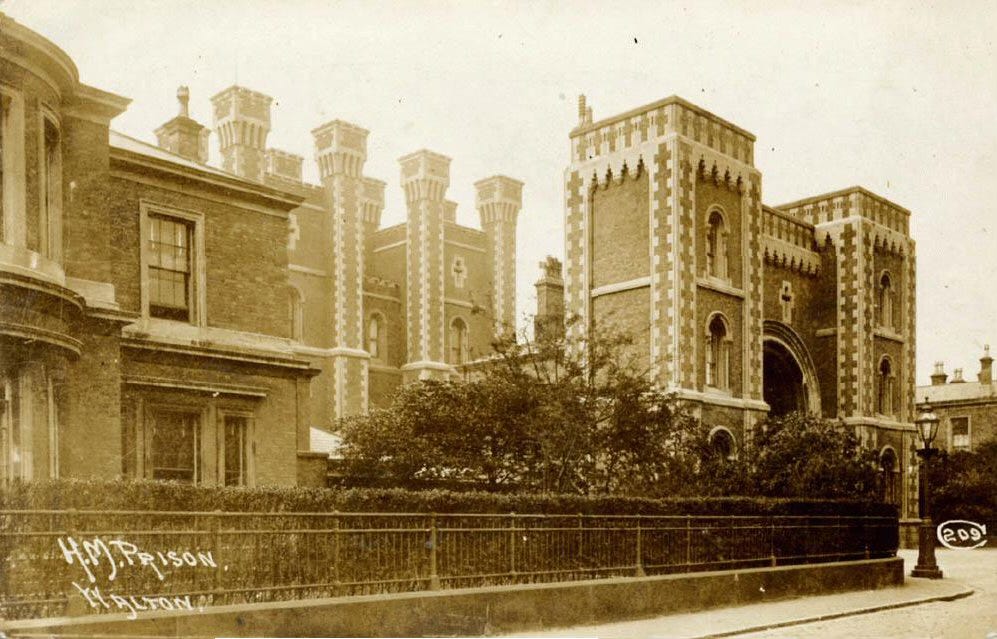The Ragged School detective
Opening a private detective office was the perfect cover for one man to take locals' money, claiming to be raising money for a Manchester Ragged School
On 10 March 1900, the North Wales Chronicle contained an advertisement for a local detective agency - the only one in the small city of Bangor. It sounded an attractive prospect to potential clients. Based at 228 High Street, Bangor, it was run by a Charles Francis, who stated that he was assisted in his business by 'professional men'. He and his staff would conduct their investigations 'day or night'. Charles Francis stressed his vast experience in the field, for he had been working as a private detective for 20 years.
Unfortunately for would-be customers, the advertisement was based on lies. Although there was indeed a physical detective office at 228 High Street, it was little more than a front for fraud. In addition, Charles Francis, the man in charge, could not have had 20 years' experience, for he was only 25 years old. As the North Wales Chronicle would soon comment, 'if [Francis] had 20 years' experience, he must have commenced business at the early age of five.'
The High Street office was not home to Charles Francis; instead, he had lodgings with Millicent Jones at 15 James Street. Millicent had lived in Bangor her whole life. She had married a local painter, but only two years into their marriage, and a year after the birth of their only child, Agnes, her husband Joseph had died. He was only 29. Millicent never married again, but made a living from plain sewing work, while taking in lodgers (one of whom would later marry her daughter). Charles was one of her lodgers, and, as was typical with Millicent's, was a young working man.
What Millicent didn't know, until she heard the accounts of his arrest, was that Charles Francis' life was a lie, and that he was something of a conman. He was born Charles Robert Molloy in Manchester in 1876, the son of Charles Molloy and Catherine (nee Elliott). His father was the child of Irish immigrants - his grandfather made silk hats, and his grandmother was a hawker. Like Millicent Jones' husband, Charles Molloy would die young: he died in 1876, aged 22, and only months after his only child's birth.
Manchester, Charles Molloy’s birthplace
Catherine Molloy, left to look after a baby on her own, remarried about 18 months after her first husband's death. Her new husband was James Isaac Francis, a Mancunian who worked as a blacksmith's stoker and a labourer. The couple had several children of their own, two of whom died in infancy. Charles Molloy was brought up in this new family, sometimes being referred to by his birth name, but at other times, by his stepfather's name. He learned a trade as a young man, becoming a joiner, or carpenter.
However, he then appears to have taken on a job with the Providence Mission Ragged School in Manchester, raising and collecting subscriptions. He was not successful in this job, and was sacked for 'irregularities'. It was at this point that he moved from his hometown, and sought lodgings in Bangor.
He established his detective office, renting the room on the High Street, and placing newspaper adverts for his business. He also had promotional fliers printed, stating 'Detective in charge, CR Francis - offices at Manchester, Liverpool and North Wales (Bangor)'. His office at Manchester was his stepfather's house, and he may have visited Liverpool - but he had no detective branches there. However, this was not unusual, as many detectives exaggerated the number of offices or workers they had.
Charles' office gave him a veneer of respectability, enabling him to get credit from various local businesses - credit that he had no intention of paying back. He managed to buy a bicycle on credit - not a luxury item, but not a cheap one either. Unfortunately, though, he made out to locals that he was still working for the Providence Mission Ragged School, and managed to get his landlady's daughter, Agnes Jones, to help him collect subscriptions for it. Charles was obviously rather a persuasive young man, but the subscriptions ended up going into his pocket rather than to the school.
When Charles realised that people were getting suspicious of his 'fundraising', he claimed that his father had just died, and that he needed to return to Manchester for his funeral. He did return to Manchester, but not to a funeral. His father, of course, had died when he was a baby, and his mother had died back in 1893, aged 39. He didn't return to his stepfather's house - James Francis had remarried a year after Catherine's death, and was now living with his new wife, his children by Catherine, and a daughter by his second wife. There was no room for Charles, and so he took lodgings in Ardwick, using the name of Charles Furnival. To his new Manchester neighbours, he claimed to have been singing in the Royal Welsh Choir at Bangor; in fact, although there was a Royal Welsh Choir, it was based at Caernarfon, and Charles had never been a member.
Eventually, the Welsh authorities caught up with him, and he was charged with obtaining money by false pretences. At his first appearance at Bangor Police Court, he claimed that he had legitimately collected the money, as he was "labouring under the illusion that I had not been dismissed as a collector for the Ragged School Mission". Despite his protestations, he was committed for trial at the Assizes. He was duly found guilty, and sent to prison. The 1901 census records him as a prisoner at the former Walton Gaol, better known as Liverpool Prison.
Liverpool Prison, a few years after Charles’ incarceration
On his release, Charles went back to his habit of gaining money through false pretences. He was arrested again, charged, and on 3 April 1903, was tried at Blackburn. He was found guilty and sent to Preston Prison for a year, being released on 18 February 1904. After that, he disappears from the archives. His stepfather and half siblings continued to live in Manchester, but there's no evidence of Charles doing so.
Charles Molloy was not the only young man who saw private investigation as a way of giving him legitimacy and enabling him to fleece individuals. Some set up fake agencies to encourage people to pay a subscription to them, either as clients or as people hoping to set up as that agency’s representatives in other cities. Others, like Molloy, may have intended to work as detectives, but found the lure of easy money too much to resist.
It’s a shame that Molloy did not utilise his office and his press adverts and try to establish himself in Bangor. I’ve not found many detectives in North Wales, and he could have had virtually a monopoly on local business at that time. He may also have been able to make contacts in Liverpool - a city much in demand for detectives, with the busy docks being targets for theft - and so do some business there. Instead, he persisted with fraud, and thus spent more time in prison than he ever would in Bangor’s High Street.






Interesting story. As you say, it's a shame that he didn't decide to actually work as a detective. He could've put his sneaky, cunning ways to work for good (or at least legitimate) causes.